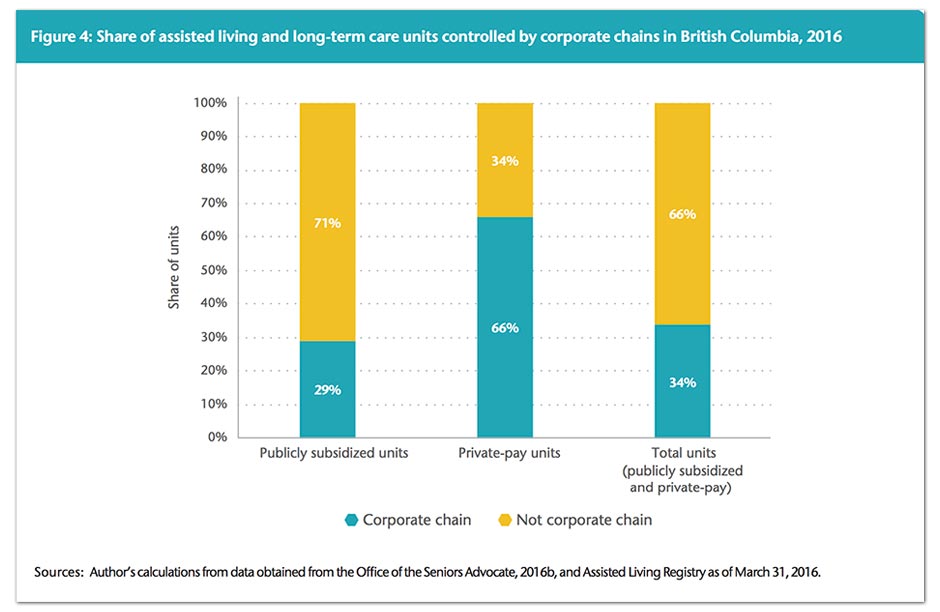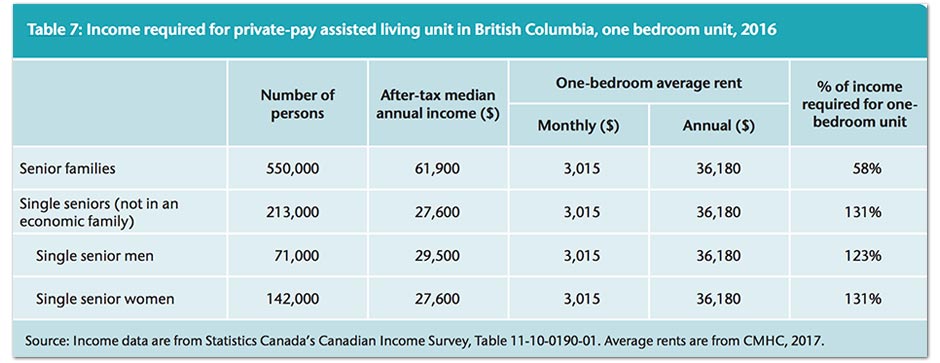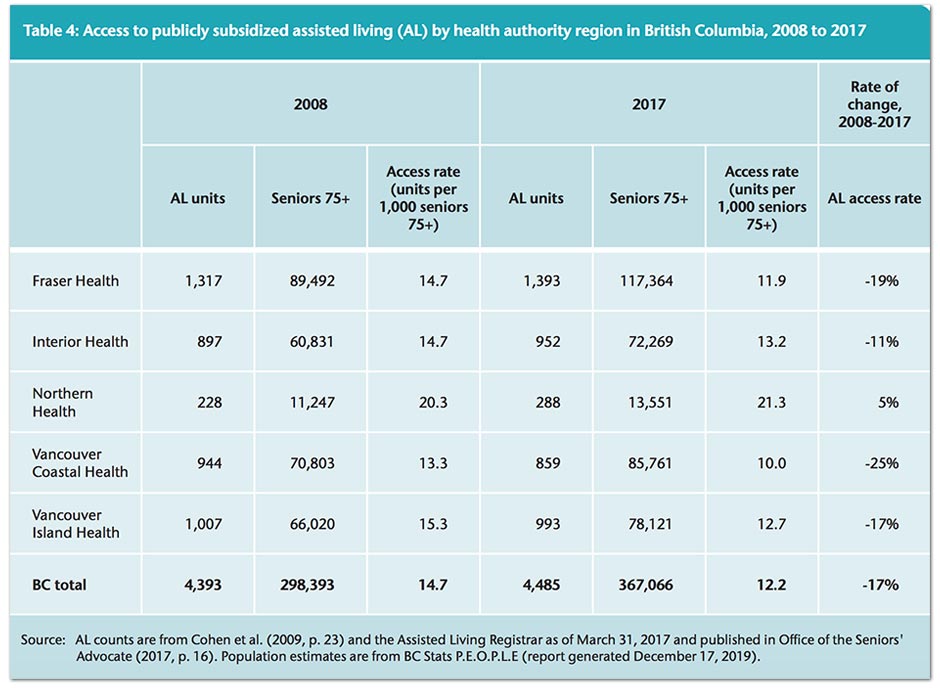
BC’s Market-Based Approach To Senior Care Reduced Access to Assisted Living Units, New Report Finds
Report recommends expanding public and non-profit senior care sector
Seniors in British Columbia have less access to publicly-subsidized assisted living spaces today than they did in 2008 after a decade of market-based approaches to senior care, a new report from the Canadian Centre for Policy Alternatives finds.
The shortage of publicly-subsidized assisted living spaces forces some seniors to seek alternatives in “private-pay” facilities at sky-high rates for beds.
The report notes the problems began in 2002, when Gordon Campbell’s BC Liberal government cut public capital spending on senior care in part by financing new capital infrastructure through public-private partnerships — also known as “P3s.”
However, the report explains BC’s P3 model provides no guarantee facilities will remain part of the publicly-subsidized senior-care system.
Because private senior-care corporations make more profit on units where residents pay out-of-pocket than through publicly-subsidized spaces (where fees are much lower), “private, for-profit sector — especially corporate chains — are more likely to build private-pay assisted living units where the rate of return on capital invested is higher.”
In 2008, there were 14.7 publicly-subsidized assisted living units per 1,000 seniors aged 75 and over. By 2017 that number fell to 12.2 units.

Canadian Centre for Policy Alternatives
Meanwhile, private-pay units are unaffordable for median-income seniors.
The study notes an average private-pay bachelor unit would cost a median-income senior couple 39% of their income, while a one-bedroom unit would cost 58% of their income.
For a median-income senior living alone, a bachelor suite would cost more than 80% of their income.

Canadian Centre for Policy Alternatives
The report notes the growth of private-pay units is worsened by corporate consolidation of retirement service providers who can easily squeeze out competition from non-profits and smaller companies.
That also means the province relies on private capital from global investors who introduce “high-risk business practices” into the sector and view retirement facilities as real estate assets rather than as essential public services:
“In 2016, corporate chains controlled 29% of publicly subsidized spaces and 66% of private-pay assisted living and long-term care spaces in BC. Although chains did not control the majority of total assisted living and long-term care units in 2016, they had a strong presence in BC, particularly in the private-pay segment of the seniors’ care sector.”

Canadian Centre for Policy Alternatives
The report’s author, Andrew Longhurst, told PressProgress the province should focus on expanding public options for seniors.
“There is certainly a need to increase accountability, transparency and public reporting in the seniors’ care system in BC,” Longhurst said. “But the overarching focus needs to be on building out the capacity of the non-profit and public sectors to deliver seniors’ care.”
“Large chains are more likely to have the administrative capacity to fulfill increased reporting/regulatory requirements, and more likely to have the financial resources for litigation,” he added.
The province’s 2020 Budget, released yesterday, includes a 6.4% increase in health care spending in 2020-2021, on top of a 5% increase in the current year. In total, the government will spend an additional $1 billion in health care spending over the three years of its fiscal plan.
The government’s health authority and hospital society spending is projected to increase 9.5% from $16.8 billion this year to $18.4 billion by 2022/23.
Responding to the budget, the BC Hospital Employees’ Union said: “Today’s provincial budget supports a multi-year plan for higher staffing levels in seniors care, faster access to primary care and diagnostic testing and major investments in health care infrastructure.”
However, the union added that “HEU has been calling on government to develop a capital plan to expand the number of care homes operated by health authorities and non-profits.”
Our journalism is powered by readers like you.
We’re an award-winning non-profit news organization that covers topics like social and economic inequality, big business and labour, and right-wing extremism.
Help us build so we can bring to light stories that don’t get the attention they deserve from Canada’s big corporate media outlets.
Donate



